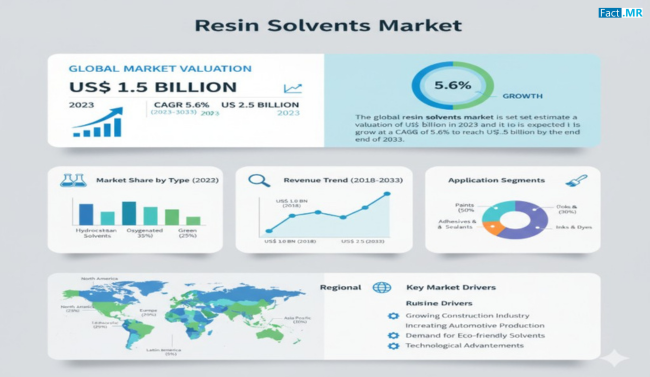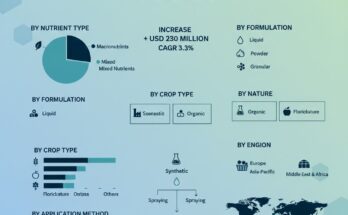Resin solvents have become an essential component across multiple industries due to their role in enhancing the performance of adhesives, paints, coatings, and printing inks. As industries worldwide focus on quality, durability, and sustainability, resin solvents are gaining prominence as a versatile and reliable solution. Their importance is reflected in applications spanning construction, automotive, packaging, and consumer goods, highlighting their integral role in modern industrial processes.
Market Overview:
Resin solvents are chemical compounds used to dissolve resins and facilitate their application in various industrial processes. They are critical in producing adhesives, coatings, and paints with superior mechanical strength, elasticity, and chemical resistance. Increasing demand for environmentally friendly and low-VOC (volatile organic compounds) formulations is pushing manufacturers to innovate and develop sustainable resin solvent solutions. This emphasis on eco-friendly products is transforming the market landscape and driving the adoption of advanced solvents.
Regional Insights:
The Asia Pacific region, particularly China, is witnessing significant growth in resin solvent consumption due to rapid industrialization, urbanization, and expansion of the construction sector. North America remains a prominent market with strong demand from the paints, coatings, and automotive industries. Europe is also a key player, driven by stringent environmental regulations and growing adoption of green technologies. Together, these regions shape the competitive dynamics of the global resin solvents market.
Key Trends & Forecast:
- Growth in Construction and Automotive Industries:Rising urbanization and infrastructure development are fueling the demand for paints, coatings, and adhesives that rely on resin solvents.
- Shift Towards Sustainable Solvents:Increasing environmental awareness and regulatory pressures are driving the adoption of low-VOC and eco-friendly resin solvents.
- Innovation in Adhesive and Coating Technologies:Advancements in polymerized resins are enhancing mechanical strength, adhesion, and chemical resistance, expanding the range of applications for resin solvents.
- Focus on Industrial Efficiency:Industries are increasingly seeking high-performance solvents that improve processing efficiency and reduce waste, aligning with sustainable manufacturing practices.
Applications & End-Use Outlook:
Resin solvents are widely used across diverse applications:
- Adhesives:Enhance bonding strength, moisture resistance, and elasticity for packaging, plastics, and consumer goods.
- Paints & Coatings:Provide smooth finishes, durability, and chemical resistance for residential, commercial, and industrial projects.
- Printing Inks:Improve color consistency, adhesion, and drying time for packaging and labeling applications.
- Plastics & Composites:Serve as a key component in composite materials, enhancing mechanical properties and processing performance.
Challenges:
Despite their widespread use, resin solvents face challenges such as environmental concerns, regulatory restrictions on VOC emissions, and fluctuating raw material prices. Companies must navigate these hurdles while balancing performance requirements with sustainability goals.
Conclusion:
Resin solvents play a crucial role in modern industrial applications, supporting innovation and efficiency across multiple sectors. Their versatility in adhesives, coatings, paints, and printing inks makes them indispensable to manufacturers worldwide. As industries increasingly adopt sustainable practices, the focus on eco-friendly, high-performance resin solvents will shape the future of the market, offering opportunities for companies that invest in innovation and regulatory compliance.
Browse Full Report – https://www.factmr.com/report/resin-solvents-market



